Safeguarding Dignity: Steps Nursing Homes Should Take to Prevent Social Media Abuse of Patients
Safeguarding Dignity: Steps Nursing Homes Should Take to Prevent Social Media Abuse of Patients
Introduction
Nursing homes should serve as sanctuaries of care and compassion for elderly and vulnerable individuals. However, in recent years, an alarming trend has surfaced – the social media abuse of patients. Social media abuse is when someone uses social media (like Facebook or Instagram) to hurt, bully, or harass an elderly or vulnerable person. To uphold their commitment to patient well-being and maintain a safe environment, nursing homes must take proactive measures to prevent this distressing form of mistreatment. In this article, we will explore essential steps nursing homes can take to protect their patients from social media abuse.
Nursing homes can and must take steps to prevent social media abuse within their facilities. There are a variety of actionable steps that can be taken. When considering a nursing home for a loved one, consider asking the administrator or director of nursing what policies they have in place to protect patients. The following measures should be among those that are mentioned:
Enforcement of Strict Social Media Policies
One of the first and most critical steps is for nursing homes to establish comprehensive social media policies. These policies should clearly outline acceptable and unacceptable behavior regarding the use of social media by staff members. They should emphasize the importance of patient privacy, confidentiality, and the prohibition of sharing any patient-related information without explicit written consent. The facility should ensure that all employees receive regular training on these policies and are aware of the potential legal and ethical consequences of violating them.
Education of Staff Members on Privacy and Ethical Obligations
Nursing homes should prioritize ongoing education and training programs that emphasize the significance of patient privacy and ethical responsibilities. Facilities provide staff members with a thorough understanding of the Health Insurance Portability and Accountability Act (HIPAA) regulations, which safeguard patient confidentiality. Nursing homes should foster a culture of respect and empathy towards patients, stressing the importance of treating them with dignity at all times.
Strict Device Usage Policies
To prevent unauthorized sharing of patient information on social media, nursing homes should establish strict guidelines regarding the use of personal electronic devices during working hours. Prohibit staff members from using personal smartphones or other devices while providing care to patients or being present in patient areas. Instead, nursing homes should encourage the use of facility-provided devices, if necessary, for work-related purposes only. Regularly monitor and enforce compliance with these policies to maintain a secure environment.
Foster a Reporting Culture
Nursing homes must create a safe and open environment where staff members feel comfortable reporting any suspicions or incidents of social media abuse (or any other type of abuse for that matter). Nursing homes should establish clear reporting channels that maintain confidentiality and protect individuals who come forward. Facilities should encourage a culture of accountability, where reporting unethical behavior is viewed as an essential responsibility. Respond promptly and thoroughly investigate any reports to take appropriate action, including disciplinary measures or involvement of relevant authorities, if necessary.
Regular Audits and Monitoring
Nursing homes should conduct regular audits and monitoring of staff members’ online activities to ensure compliance with social media policies. Facilities should utilize advanced monitoring software or engage third-party services to track social media usage within the facility. Nursing homes should regularly review and assess digital footprints to identify any potential breaches and address them promptly. It is essential for nursing homes to stay up to date with evolving technology trends and adapt monitoring strategies accordingly.
Conclusion
Preventing social media abuse of patients in nursing homes requires a multifaceted approach that combines strict policies, ongoing education, and a culture of reporting and accountability. By taking these proactive steps, nursing homes can and should create a safe and respectful environment for patients, where their privacy and dignity are upheld.
 Jeff Powless is an attorney and the author of the 2017 book, Abuses and Excuses: How To Hold Bad Nursing Homes Accountable. Abuses and Excuses breaks new ground in helping patients and families hold bad nursing homes accountable, sharing a wealth of insider strategies and insights. It’s an eye-opening account of corporate greed, acts of neglect and abuse, an insidious industry culture of cover-up, and the actual harm that inevitably befalls vulnerable nursing home patients all across the country with shocking frequency.
Jeff Powless is an attorney and the author of the 2017 book, Abuses and Excuses: How To Hold Bad Nursing Homes Accountable. Abuses and Excuses breaks new ground in helping patients and families hold bad nursing homes accountable, sharing a wealth of insider strategies and insights. It’s an eye-opening account of corporate greed, acts of neglect and abuse, an insidious industry culture of cover-up, and the actual harm that inevitably befalls vulnerable nursing home patients all across the country with shocking frequency.
You May Also Be Interested In…
Nursing Home Patients Rights: Understanding Your Protections
Is Your Nursing Home Taking Necessary Steps to Ensure Patient Safety?
How Common Is Nursing Home Abuse and Neglect?
